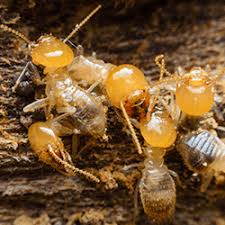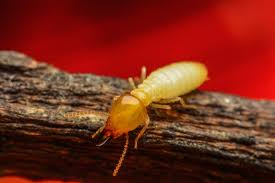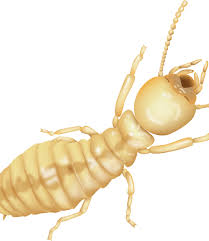
What Does Who Is Termite Control Do?
There are two main techniques termites can come to infest your home (assuming they werent already there in the first place); from atmosphere and through the ground.
Even a drywood termite infestation normally takes place when an existing colony sends out flying termite swarmers. Once these swarmers find a wooden crevice in your home, they lose their wings, carve out a tiny nest, and begin laying eggs to initiate a brand new termite colony.
On the other hand, subterranean termites, whose colonies are underground, can enter your home via its foundations. As these termites forage for food, they may stumble upon a rich new food source your home. Subterranean termites commonly build mud tunnels over foundation walls to get the wooden areas of the structure.
Examine This Report about Who Is Termite Control
Note: While there are other species of termites, these are the two most common species responsible for the majority of the damage to peoples homes.

Because of this, it's very important that you learn to spot the signs of a termite infestation. Keep a look out for the following:
If you see a swarm of winged termites near or around your house, theres a sure sign that a termite colony is nearby. Similar to winged ants, these winged termites are more very likely to swarm around a light source. Additionally they look rather similar,And the layperson will not be able to tell them apart. .
Our Who Is Termite Control Statements
Termite swarmers dont maintain their wings for long. Once they lose their wings, they are in search of places to construct new nests.
If you notice little piles of lost swarmers wings on areas like window sills, or captured in spider webs, there may be a termite colony nearby; or one about to begin.
Mud tubes are small tunnels made by termites to transport food back to their own colony. Source: masseyservices.com
Subterranean termites construct mud tubes (occasionally known as shelter or foraging tubes) as links between their food source and their colony. All these are produced from soil, debris, and wood, and they help protect the colony against predators and conserve moisture.
The Only Guide for Who Is Termite Control
If you have a subterranean termite infestation, you will find these tubes in the foundations of your house or in its substructure.
As subterranean termites eat through the wood of your house, they produce termite galleries. These will be the empty spaces left in the timber as they float through it. Typically, termite galleries run parallel to the grain of this wood.

Termites will eat your home from the inside out; thats exactly what makes them so insidious. A piece of wood could seem perfectly normal on the outside but be completely infested with termites on the inside. If you imagine that a termite infestation at a certain area, tap or puncture the wood to find out if its hollow.
Things about Who Is Termite Control
Coupled with different signs of termite infestation, swollen wooden floorboards can mean there is termite damage underneath them.
Termites like dark and moist areas. Thats the reason why they live just below the surface of the wood and bring in moisture into their termite galleries. This moisture can often cause the wood to swell. In case you have termites in your wooden floors, the floors will probably start to swell. Likewise the moisture can also result in the paint on wooden surfaces to peel or bubble; especially if the termites have eaten all of the way up to the paint coating. .
Since these signs are similar to the signs of general water flows (since theyre either due to moisture), be sure to rule out any water flows first. In case click over here youve determined that water escapes are not the reason, you can inspect further by seeing whether the timber has become hollow.
The Buzz on Who Is Termite Control
You may have noticed we left off termite mounds off this list. Even though stereotypical, not all of termite species build mounds. In reality, no North American termite species construct mounds; the ones that do originate primarily in Australia and Africa.
According to the United States Department of Agriculture, termites trigger $40 billion each year in damages worldwide and are responsible for destroying 600,000 houses in the United here are the findings States annually. The total annual cost of termite control and damage repair in the United States is $2 billion. This does not include costs to the army in the Formosan termite (a subterranean species).